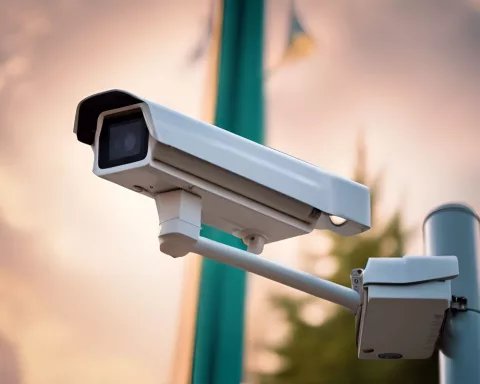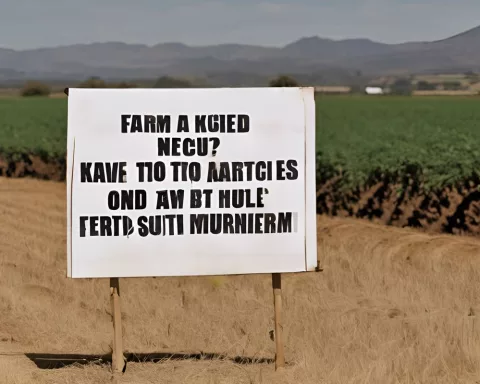Shepherd and Mary Bushiri are caught in a dramatic legal battle as they fight extradition from Malawi to South Africa over serious charges like fraud and money laundering. After fleeing South Africa while on bail, their case has drawn attention for its emotional twists and the couple’s claims of mistrust in South Africa’s justice system. The South African Minister of Justice, Mamoloko Kubayi, has expressed frustration at their legal tactics, insisting they must return to face the law. As their fight continues, the Bushiris’ case raises big questions about justice, faith, and the trust of their followers in the Enlightened Christian Gathering Church. The world watches closely, eager to see how this complex story unfolds.
What are the key legal issues surrounding Shepherd Bushiri and Mary Bushiri’s extradition?
The legal battle involving Shepherd and Mary Bushiri centers on their extradition from Malawi to South Africa, facing serious charges like fraud and money laundering. Their appeal highlights concerns about the trustworthiness of South Africa’s justice system, complicating the extradition process with emotional and legal intricacies.
The Court Ruling and Its Implications
Shepherd Bushiri and his wife, Mary, find themselves embroiled in a legal quagmire that has captivated audiences in both their homeland of Malawi and South Africa. The ongoing legal battle centers on a controversial court decision approving their extradition to South Africa. Known for their leadership of the Enlightened Christian Gathering Church (ECG) in Pretoria, the couple is now navigating a complex judicial terrain that mixes legal principles with public perception and personal faith.
Earlier this month, a significant ruling came from the Chief Resident Magistrate Court in Malawi, which favored South Africa’s request to extradite the Bushiris. This ruling serves as a pivotal moment in a case already rich with drama and legal maneuvering. In 2020, the Bushiris made headlines by fleeing South Africa while out on bail despite their passports being confiscated. This escape has fueled speculation and intrigue, adding layers of complexity to an already convoluted case.
The charges against the Bushiris in South Africa are severe and varied, including fraud, theft, and money laundering. These allegations represent a considerable breach of trust. However, the Bushiris are not conceding easily. They have appealed the court ruling, citing a lack of trust in South Africa’s justice system. This claim injects an emotional and psychological dimension into an already high-stakes legal battle and raises questions about the integrity and effectiveness of judicial systems in both Malawi and South Africa.
Ministerial Frustration and International Legal Intricacies
South African Minister of Justice and Constitutional Development, Mamoloko Kubayi, has openly expressed her frustration with the Bushiris’ legal tactics. She accused the couple of employing delay strategies to evade justice. “The justice system in the country has stood the test of time. He went there, he wanted bail and was given bail which regrettably he violated. So, it is his own doing that he actually undermined the judicial system of South Africa and he should come back and face the music. If he has not done anything wrong, why is he running away?” Kubayi told eNCA. Her remarks echo a broader sentiment in South Africa, where there is an urgent desire to see justice administered.
Despite her strong words, Kubayi also recognized the limitations inherent in international legal processes. South Africa cannot dictate the judicial proceedings in Malawi and must respect its legal autonomy. “We have to allow them [court] and have faith because we have met the requirements… Eventually, what we’re asking for as the South African government is that he will have to come back into South Africa and face the music,” she added. This statement highlights the delicate balance between pursuing justice and respecting international diplomatic norms.
The narrative surrounding the Bushiris is not purely legal; it is also deeply entwined with their religious roles and influence through the Enlightened Christian Gathering Church. Founded on principles of prosperity and faith healing, the church attracted a large following, making the Bushiris significant figures across the African continent. Their fall from grace affects legal perspectives and the faith of countless followers.
The Broader Context and Global Implications
As the Bushiris continue to fight their extradition, many questions remain unanswered. What does this legal battle mean for international justice? How do personal beliefs and public trust intersect in such high-profile cases? What does the future hold for the Bushiris, who continue to defy overwhelming odds?
The significance of these questions extends beyond just the Bushiris’ case. Globally, religious leaders have frequently found themselves entangled in controversies and legal challenges, from televangelists in the United States to spiritual leaders in Europe. The intersection of wealth, power, and faith often fuels such controversies. This broader historical perspective provides a richer understanding of the Bushiris’ predicament, situating it within a global narrative of religious leadership and accountability.
The couple’s appeal rests on their mistrust of the South African justice system, a statement that carries substantial emotional and psychological weight. This mistrust is not unique to the Bushiris but reflects broader issues of faith in institutional justice systems. This focus on trust brings to light a critical aspect of judicial systems worldwide. When people lose faith in these systems, it undermines the foundation of justice, leading to prolonged legal battles and public skepticism.
The Human Element and the Future
Moreover, the Bushiris’ case highlights the role of international cooperation in legal matters. Extradition requests depend not only on legal agreements but also on diplomatic relations and mutual respect between countries. The complexities of these relationships often influence the speed and outcome of such legal processes, adding another layer to the Bushiris’ case.
As we delve deeper into this ongoing saga, it becomes evident that the Bushiris are not just fighting a legal battle but also a battle for their reputation, faith, and future. Their defiance, appeals, and the subsequent reactions from both South African and Malawian authorities paint a vivid picture of the intricate dance between law, justice, and personal belief.
One cannot ignore the human element in this narrative—the followers of the Enlightened Christian Gathering Church who find themselves in a state of limbo. Their faith in their leaders is being tested, adding another dimension to this multifaceted story. The Bushiris’ case, therefore, concerns the law and the people who placed their trust in them.
As this legal drama unfolds, it prompts us to ponder the intricate relationship between justice, faith, and leadership. The Bushiris’ case serves as a poignant reminder of the complexities that arise when these elements collide, creating a narrative as compelling as it is profound. The world watches closely, captivated by this intricate dance of law, faith, and justice.
FAQ: The Legal Odyssey of Shepherd Bushiri and Mary Bushiri
What are the main charges against Shepherd and Mary Bushiri?
The Bushiris face serious charges in South Africa, including fraud, money laundering, and theft. These allegations represent a significant breach of trust and have contributed to their dramatic legal battle for extradition from Malawi.
Why did Shepherd and Mary Bushiri flee South Africa?
The couple fled South Africa while out on bail in 2020, which has fueled speculation and intrigue surrounding their case. Their escape occurred despite their passports being confiscated, adding layers of complexity to their legal situation.
What is the current status of their extradition case?
A significant ruling from the Chief Resident Magistrate Court in Malawi recently approved South Africa’s request for extradition, but the Bushiris have appealed this decision. Their appeal is largely based on claims of mistrust in South Africa’s justice system.
How has the South African government responded to the Bushiris’ legal tactics?
South African Minister of Justice Mamoloko Kubayi has expressed frustration with the Bushiris’ delay strategies, asserting that they must return to face the law. She emphasized the integrity of South Africa’s judicial system while also acknowledging the limitations of international legal processes.
What impact does this case have on the Bushiris’ followers and the Enlightened Christian Gathering Church?
The Bushiris’ legal troubles have put their leadership and the faith of their followers to the test. Many followers are left in a state of uncertainty as their trust in the couple is challenged, raising broader questions about faith, leadership, and accountability within religious communities.
What broader implications does this case have for international justice?
The Bushiris’ extradition saga raises significant questions about the intersection of personal beliefs, public trust, and the effectiveness of judicial systems globally. It underscores the complexities of international cooperation in legal matters and the often delicate balance between pursuing justice and respecting diplomatic relations between nations.












